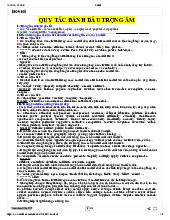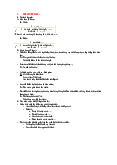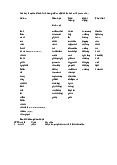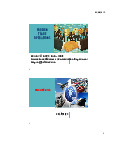

Preview text:
16:14 9/8/24
Level 4 Week 1 Parent Information Sheet
This week, we have been learning about Level 4
words that end with adjacent consonants. Top Tips
When two or more consonants next to each other in a word each make
their own sound, we call them ‘adjacent consonants’, e.g. ‘lk’ in milk, ‘st’ in nest and ‘mp’ in chimp.
Children need practice in hearing, segmenting and blending words
containing adjacent consonants so they can learn to read and write them fluently.
(n.b. Digraphs, like the ‘ch’ in chimp, are not called adjacent consonants
in phonics because the ‘c’ and the ‘h’ go together to make one sound.) Reading Tricky Words
We have been learning to read the tricky words said and so. Spelling Tricky Words
We have been learning to spell the tricky words he, be, we, she and me. he h we w me m be b sh s e h Word List
Point to each grapheme and say the sound to support your child to read the words. milk nest damp toast soft belt bulb shelf film next
Can you add sound buttons and bars to the rest of the words? Remember
that adjacent consonants have separate sound buttons, whereas digraphs have sound bars.
Made by teachers, perfect for parents
Free parent packs at twinkl.co.uk/parents about:blank 1/2 16:14 9/8/24
Level 4 Week 1 Parent Information Sheet CVCC Words Level 4
Choose the correct adjacent consonants to spell the words. lk mp st nd xt lb lt lf 1. la 5. mi 2. be 6. wi 3. toa 7. te 4. bu 8. go
Made by teachers, perfect for parents
Free parent packs at twinkl.co.uk/parents about:blank 2/2




